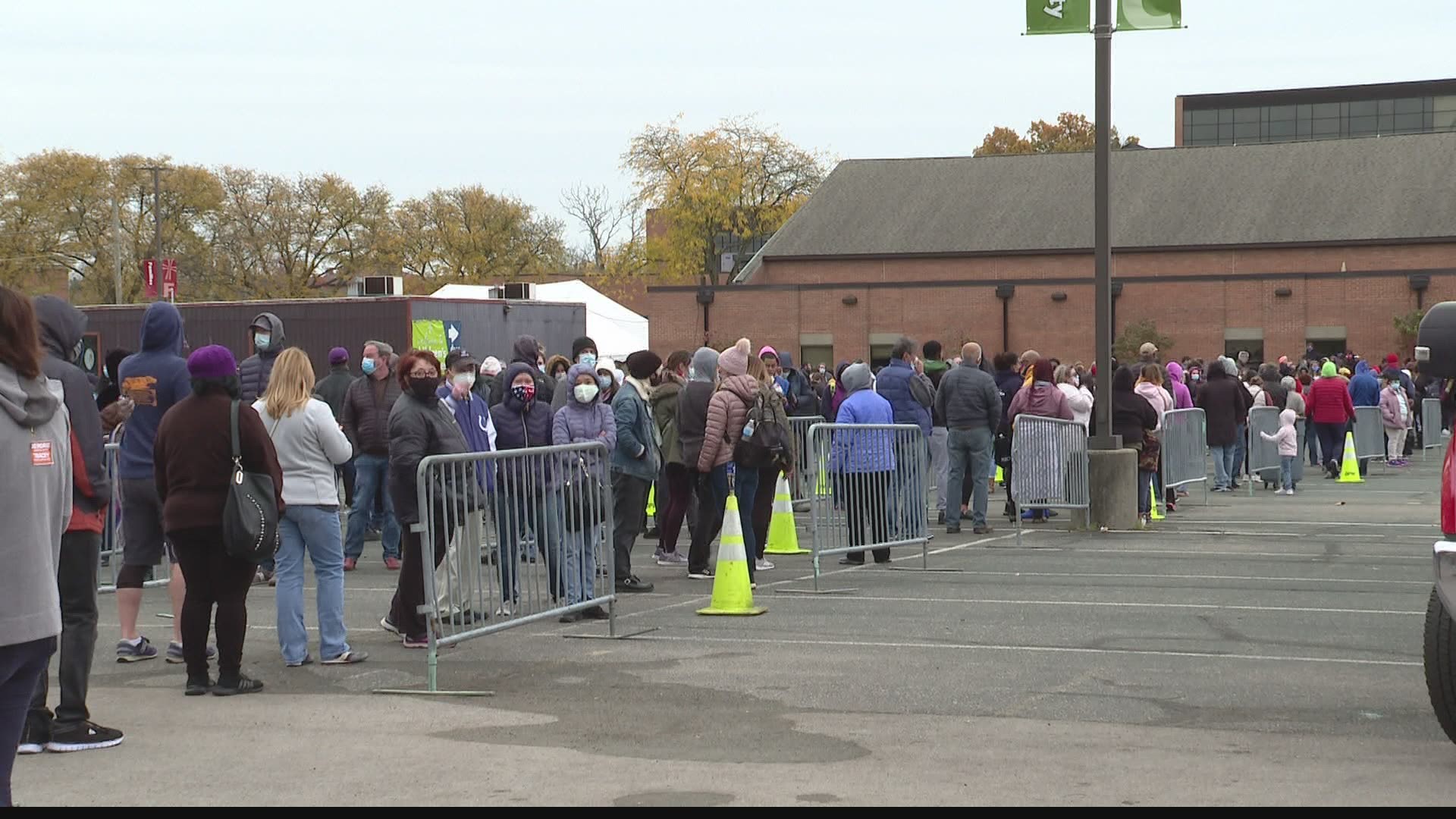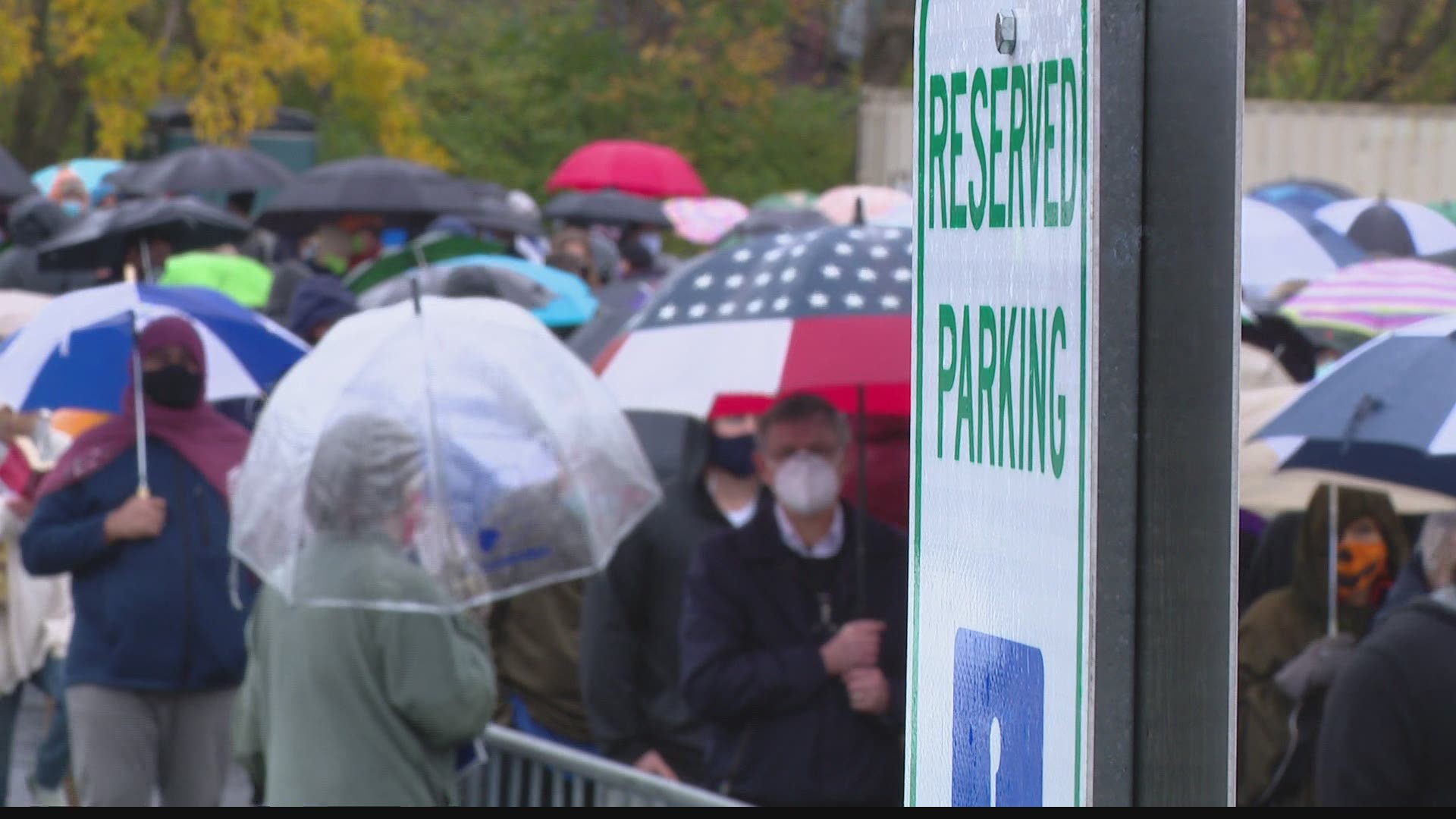INDIANAPOLIS — Numbers from 2018 show there are 4,526,663 registered voters in Indiana, yet far below that number vote.
In the 2016 presidential election, only 58 percent of registered voters cast their ballot.
During early voting this fall, people have waited hours in Indianapolis to vote, so what does that mean for Election Day and the candidates?
Andy Downs, Purdue-Fort Wayne professor and director of The Mike Downs Center for Indiana Politics, offers some perspective
"We’ve only been doing aggressive early voting campaigns for about 12 or 16 years, depending on where you are," he explained.
That's one reason he gives for long lines of early voters.
"Democrats have been much more likely to say they were going to cast their votes early. They’ve been much more likely to use mail-in ballots than Republicans," he said.
He says part of that is because President Donald Trump encouraged followers to vote on Election Day. But while Downs feels the Indianapolis early voting crowds are heavily Democrat, it doesn't necessarily mean any surprises.
"I wouldn’t at this point put a lot of money down on massively, massively large turnout. In terms of the state of Indiana, we could be looking at something well into the 50s, if not into the 60s, which would be pretty good turnout for this state," according to Downs.
"The research has shown the vast majority of people who are doing that are simply taking advantage of the convenience; in other words they are people who would have voted on Election Day they are just voting early, so it’s not really expanding the electorate," he continued.
In 2008, Indiana went blue with a roughly 28,000-vote victory for Barack Obama. While Downs believes 2020 will also be close, he feels the state will go to Trump.
"There are a few polls that have shown that President Trump has a pretty comfortable lead here. It’s not the 19 points he won by (in 2016), but it’s still a pretty comfortable lead. The fact that Vice President Pence did a little bit of a campaign stop in Fort Wayne is an indication that they saw some reason to try and bump up turnout in the state for the campaign," Downs said.
The results may take several days after Election Day to count.
"This election there will be the increased potential for people to doubt the outcome in part because it's going to take a lot longer to count the votes. We’re so used to, on Tuesday night, knowing exactly who won. We know we will have tens of thousands of paper ballots to count. There’s a really good chance the election board will choose to begin counting those on Wednesday. They won’t even begin to count them on Tuesday because there are so many; they’ll move that work to Wednesday, Thursday, Friday, and so on," Downs explained.
That could lead to more tensions regarding the timing and the outcome.
"Part of what is challenging this year is there does not seem to be as much of a willingness to accept the results and that could lead to problems down the road," Downs said.


